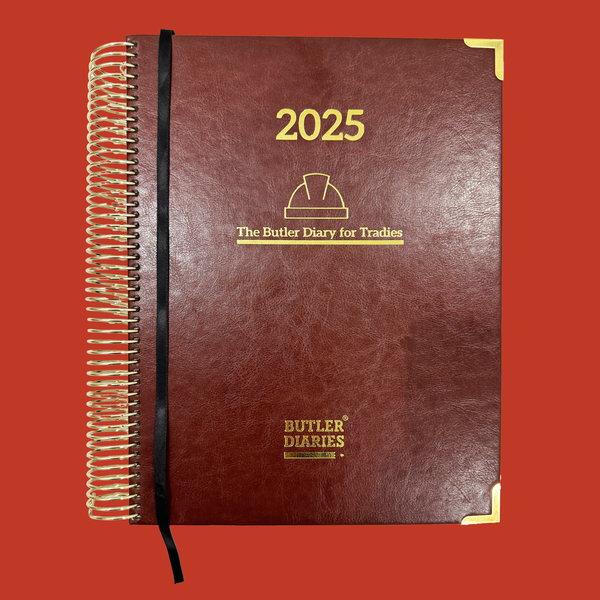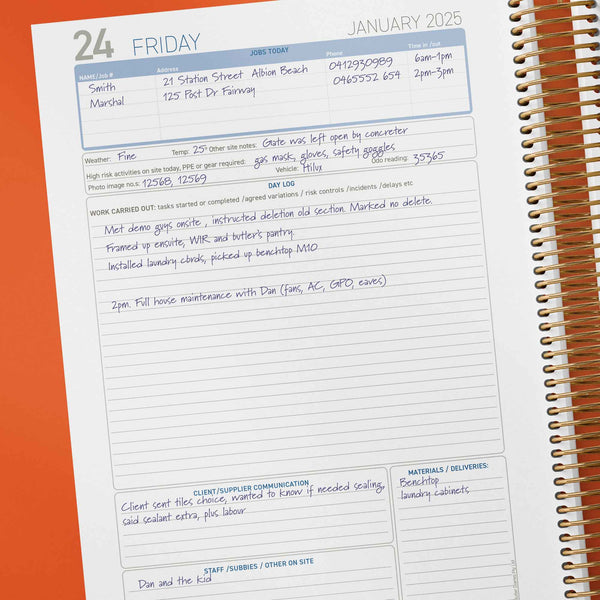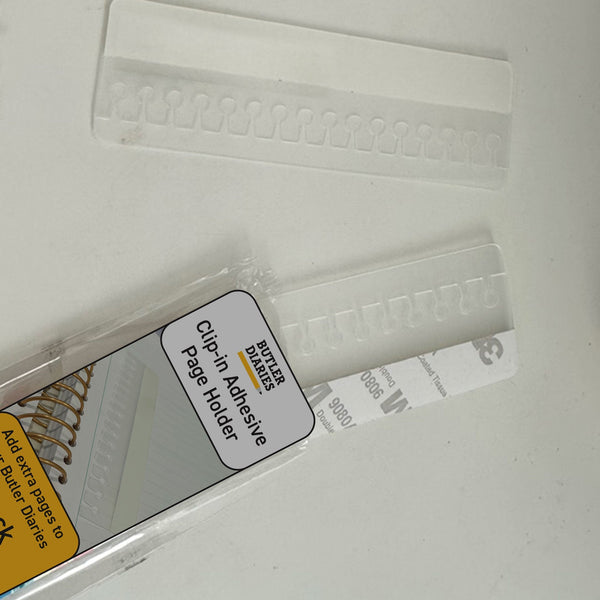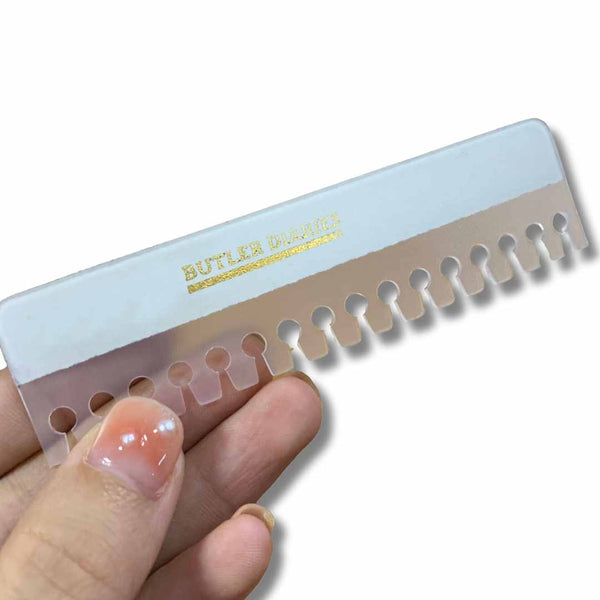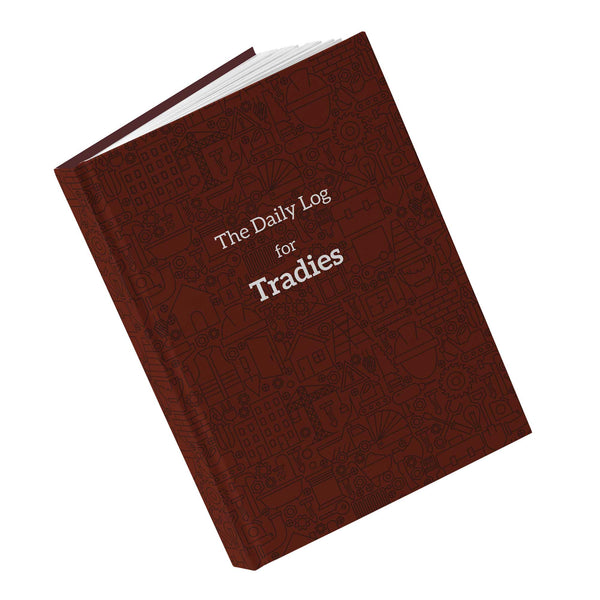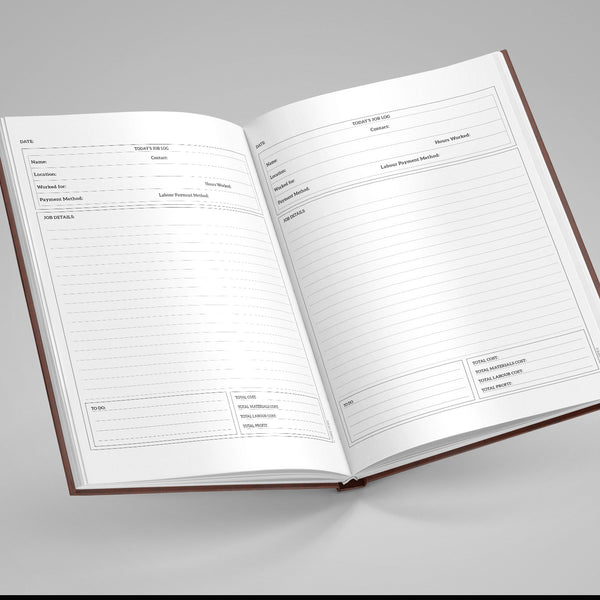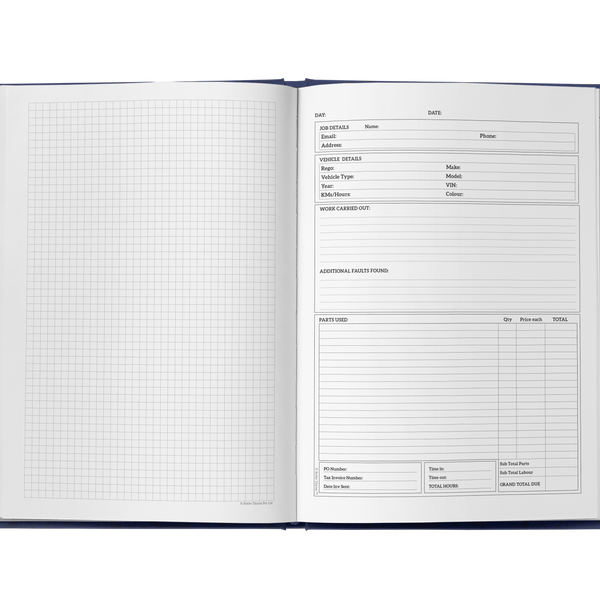Let's be honest - talking about "work-life balance" as a tradie can feel like a joke sometimes. You're dealing with tight deadlines, physical exhaustion, clients who expect miracles, and the constant pressure to earn enough to keep the family fed.
But here's the thing: the construction industry has a serious problem. Australian construction workers are six times more likely to die from suicide than an accident at work. That's not a statistic we can ignore.
The good news? There are tradies out there who've cracked the code on balancing a demanding job with a life worth living. Here's what actually works in the real world.
The Reality Check: Why Tradies Struggle More
Before we dive into solutions, let's acknowledge why this is harder for us than office workers:
- Physical exhaustion: Your body's cooked at the end of the day
- Unpredictable hours: Emergency calls don't care about dinner time
- Seasonal pressures: Make hay while the sun shines mentality
- Client expectations: Everyone wants their job done yesterday
- Financial pressure: No work often means no pay
- "Tough it out" culture: Asking for help can feel like weakness
A recent study found that 47% of Australian workers feel mentally or physically exhausted at the end of the working day, and for tradies, that number's probably higher.
1. Set Boundaries That Actually Stick
The first step isn't just setting boundaries - it's making them stick when a client calls at 7pm with an "emergency."
Start Times and Finish Times
Pick your hours and communicate them clearly. Most successful tradies we know work something like 7am-4pm or 8am-5pm. When you finish, you finish. Your Construction Diary should reflect these boundaries in your scheduling.
The Emergency Filter
Not everything's an emergency. A real emergency is water flooding someone's house or a power outage affecting safety. A kitchen renovation that "needs to be done by Friday" isn't an emergency - it's poor planning.
Weekend Work Rules
If you work weekends, charge premium rates and limit it to genuine emergencies or pre-planned projects. Your family deserves at least one full day with you.
2. Get Your Time Management Sorted
Poor time management isn't just about being disorganised - it's about constantly feeling behind and stressed.
Plan Your Week on Sunday
Spend 20 minutes every Sunday mapping out your week in your Construction Diary. Look at travel times, job complexity, and buffer zones for when things go wrong (because they will).
The "One Thing" Rule
Each day, identify the one thing that absolutely must get done. Everything else is a bonus. This stops you from feeling like you're constantly failing.
Build in Buffer Time
Always add 20% more time than you think a job will take. Materials delays, unexpected problems, difficult clients - they're all part of the job.
Use the Right Tools
For detailed daily tracking, the Daily Log for Tradies helps you see exactly where your time's going and identify patterns that are stuffing up your schedule.
3. Look After Your Body and Mind
You can't pour from an empty cup, and your body is your business.
Physical Health Basics
The construction industry has the highest rates of musculoskeletal disorders. MSDs account for 30% of injuries sustained by Victorian construction workers. Looking after your body isn't optional - it's business critical.
- Proper lifting technique: Your back has to last decades, not just today
- Stay hydrated: Dehydration affects judgment and increases accident risk
- Stretch daily: Five minutes of stretching can prevent weeks of back pain
- Good boots and gear: Invest in quality - your joints will thank you
Mental Health Reality Check
Here's the brutal truth: 1 in 4 construction workers in Australia had high symptoms of depression and/or anxiety. That's not weakness - that's an industry-wide problem that needs addressing.
Signs to watch for:
- Constantly feeling overwhelmed or hopeless
- Drinking more to cope with stress
- Snapping at family or workmates
- Trouble sleeping or constant fatigue
- Losing interest in things you used to enjoy
Image suggestion: Tradie doing simple stretches on job site during break
Search prompt: "Construction worker stretching break time physical health job site wellness"
SEO filename: tradie-stretching-break-time-physical-wellness.jpeg
Alt text: "Construction worker doing stretches during work break showing importance of physical wellness on job site"
4. Find Something Outside Work That's Just Yours
When your whole identity is wrapped up in work, everything falls apart when work goes bad.
Hobbies That Use Different Skills
If you're swinging a hammer all day, try something that uses your brain differently - fishing, cooking, reading, gaming, music. If you're doing detailed electrical work, maybe try something physical like footy or mountain biking.
Social Activities
Join a local club, sports team, or volunteer group. Having mates outside the industry gives you perspective and support that work colleagues can't always provide.
Family Time That's Actually Family Time
Put the phone away. Don't talk about work. Be present. Your kids don't need another lecture about work ethic - they need you to actually be there.
5. Keep Learning (But Don't Burn Out Doing It)
Professional development is crucial for job security and better pay, but it needs to be sustainable.
Strategic Learning
Focus on skills that'll actually improve your earning potential or make your job easier. New safety tickets, technology that speeds up your work, or business skills if you want to go out on your own.
Learning During Work Hours
Try to do training during work time where possible. Your free time is precious - don't give it all away.
Small Steps
You don't need to revolutionise your career overnight. One new skill or certification per year is plenty.

6. Strengthen Your Relationships
Strong relationships are your safety net when things get tough.
Be Honest About Work Stress
Don't pretend everything's fine when it's not. Your partner can't support you if they don't know what's going on.
Regular Check-ins
Have weekly conversations about how things are going - work, money, family, goals. Don't let issues build up until they explode.
Make Time for Mates
That beer after work or weekend BBQ isn't just social time - it's mental health maintenance. The construction industry can be isolating, and maintaining friendships takes effort.
7. Know When to Ask for Help
Here's where the industry's "tough it out" culture really hurts us. Asking for help isn't giving up - it's being smart.
Professional Help
If you're struggling mentally, talk to someone. Organizations like Mates in Construction provide free, confidential support specifically for people in our industry.
Business Help
If you're struggling financially or with business management, get advice early. An accountant or business advisor costs less than going bankrupt.
Health Support
Don't ignore physical pain or mental health symptoms. Early intervention is always cheaper and more effective than crisis management.
Emergency Contacts
- Lifeline: 13 11 14
- Mates in Construction: 1300 642 111
- Beyond Blue: 1300 22 4636
- Men's Line: 1300 78 99 78
8. Get Your Documentation Sorted
Staying organised isn't just about efficiency - it's about reducing stress and protecting your reputation.
Professional Documentation
 Use your Construction Diary to track everything. Good records protect you from disputes, help with invoicing, and show clients you're professional.
Use your Construction Diary to track everything. Good records protect you from disputes, help with invoicing, and show clients you're professional.
Clear Communication
Document client communications and changes. Keep your leather notepad handy for quick notes during client meetings.
System That Works
Having organised systems reduces stress and gives you back time. Use page holders to keep important information easily accessible.
The Real Talk About Change
Here's the thing - you can't change everything overnight, and you don't need to. Pick one or two strategies that resonate with you and start there.
Maybe this week you just commit to putting your phone on silent during dinner. Next week, maybe you plan your Monday schedule on Sunday night. Small changes add up to big differences.
What Success Actually Looks Like
Work-life balance as a tradie doesn't mean working 9-5 Monday to Friday - that's not realistic for most of us. It means:
- Finishing most days feeling tired but not completely cooked
- Having at least one full day off per week
- Being present when you're with family and friends
- Having energy for things outside work
- Not constantly worrying about money or work
- Feeling like you're building towards something, not just surviving

Industry Changes That Give Us Hope
The construction industry is slowly waking up to mental health. 84% of construction industry managers now think poor mental health is an issue, compared to virtually no awareness a decade ago.
More companies are offering:
- Employee assistance programs
- Mental health days
- Flexible working arrangements where possible
- Training for supervisors on mental health
- On-site support services
It's not perfect, but it's progress.
Your Next Steps
Don't try to revolutionise your life this week. Pick one thing from this list and commit to it for the next month:
- Set a firm finish time and stick to it for one week
- Plan your week every Sunday for a month
- Put your phone on silent during family meals
- Take one proper lunch break every day
- Do five minutes of stretching each morning
- Have one proper conversation with your partner about work stress
- Look into one hobby or activity you used to enjoy
Once that becomes a habit, add something else. Small, consistent changes beat dramatic overhauls every time.
Remember: You're not just building houses, roads, or offices - you're building a life. Make sure it's one worth living.
Ready to get organised and reduce stress? Start with your Construction Diary and take control of your schedule. Your future self will thank you.





